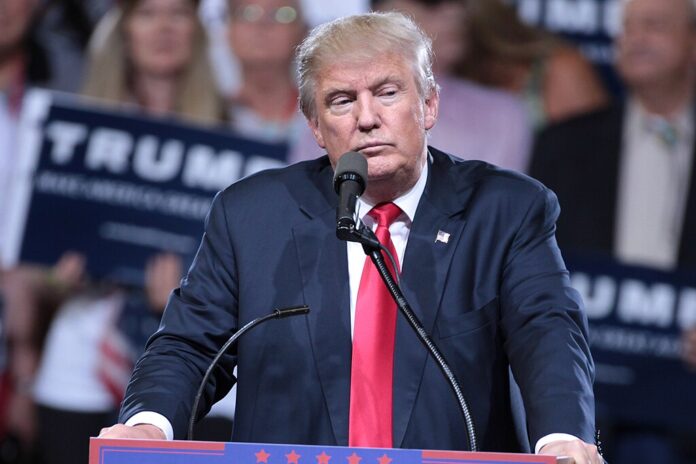FBI clarifies earlier confusion, affirming that Former President Trump was indeed hit by a bullet in the July 13 attack
In a statement released on Friday, the FBI confirmed that former President Donald Trump was struck by a bullet during the attempted assassination on July 13 at a rally in Pennsylvania. This announcement comes after weeks of conflicting reports and speculation regarding the nature of Trump’s injuries.
The FBI’s statement clarified that the injury to Trump’s right ear was caused by a bullet fired from the gunman’s rifle, whether whole or fragmented. This definitive account aims to address previous ambiguity and counter the conspiracy theories that have proliferated since the attack.
Embed from Getty ImagesEarlier, FBI Director Christopher Wray’s comments had cast doubt on whether Trump had been hit by a bullet, leading to heightened tensions and frustration from Trump and his supporters. Trump’s campaign and the Secret Service had previously been tight-lipped about the specifics of the injuries, and Trump’s own medical records had not been released.
During a Friday appearance in West Palm Beach, Florida, Trump addressed the FBI’s clarification, expressing his displeasure over previous suggestions that his injuries might have been caused by shrapnel or glass. “Did you see the FBI today apologized?” Trump said. “It just never ends with these people. … We accept their apology.”
The FBI’s statement was a response to criticism and confusion following Wray’s earlier remarks, which were seen as undermining Trump’s account of the shooting. This controversy has further strained the relationship between Trump and federal law enforcement agencies, which Trump has accused of bias against him.
Trump’s former White House doctor, Ronny Jackson, who has been treating him since the attack, also weighed in. Jackson, now a Texas Congressman, dismissed any suggestion that Trump’s injury was caused by anything other than a bullet. “It was a bullet wound,” Jackson stated, emphasizing that his extensive experience with gunshot wounds supports this conclusion.
The incident has fueled further controversy and political tension. Trump’s campaign spokesperson, Steven Cheung, criticized the media for perpetuating conspiracy theories and defended the campaign’s transparency regarding the attack. Cheung labelled those questioning the shooting’s authenticity as either “mentally deficient” or “willfully peddling falsehoods.”
Senator Lindsey Graham, a staunch Trump ally, also called for clarity from Wray, expressing concern that the conflicting statements undermined the FBI’s credibility. In a letter to Wray, Graham urged the FBI Director to correct any misleading information to restore public confidence in the agency.
The attack, which resulted in the death of the gunman and injuries to several others, has intensified scrutiny of the FBI and heightened tensions between Trump and federal agencies. The incident underscores ongoing controversies surrounding Trump’s interactions with law enforcement and his critics’ scepticism about his claims.
Analysis:
Political: The FBI’s confirmation that Trump was struck by a bullet highlights the ongoing tension between Trump and federal law enforcement. The clarification addresses the controversies and conspiracy theories that have emerged but also deepens the divide between Trump and the FBI.
Social: The incident reflects broader societal divisions and the impact of high-profile attacks on public figures. The controversy over Trump’s injury has stirred significant public and media debate, showcasing the polarized nature of contemporary political discourse.
Racial: The controversy does not directly involve racial issues but intersects with broader discussions about how political figures and law enforcement are perceived across different demographics. The debate over the FBI’s handling of the case could have implications for public trust in federal institutions.
Gender: The gender dynamics are not a central issue in this case, but the scrutiny of Trump’s medical treatment and the response to his injury involve discussions about public figures’ credibility and media portrayal, which can have gendered dimensions in broader political contexts.
Economic: While the economic impact is indirect, the incident could influence public perception of law enforcement agencies and political stability, which in turn can affect investor confidence and economic conditions. The ongoing controversy may also impact campaign financing and political donations.
